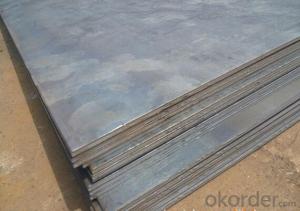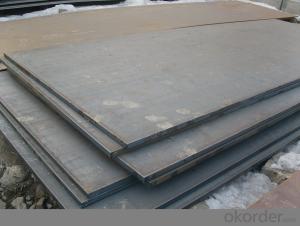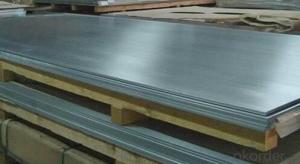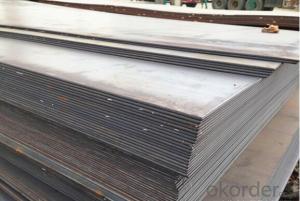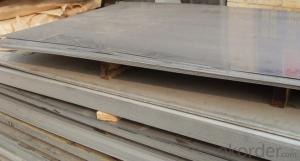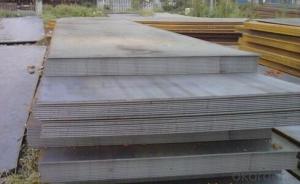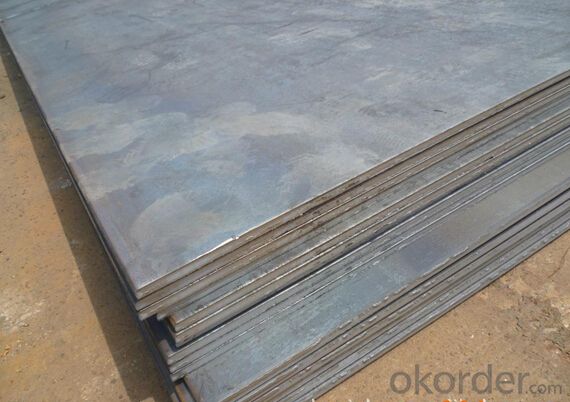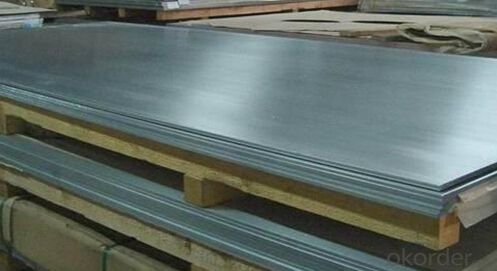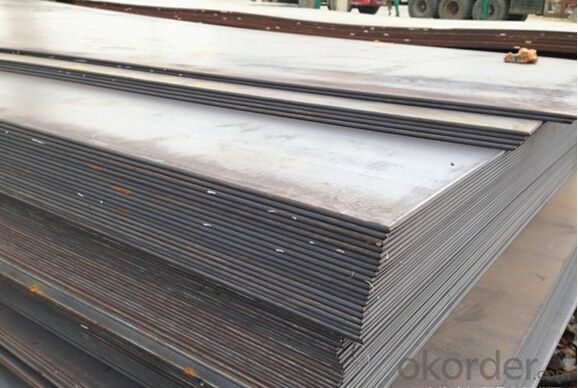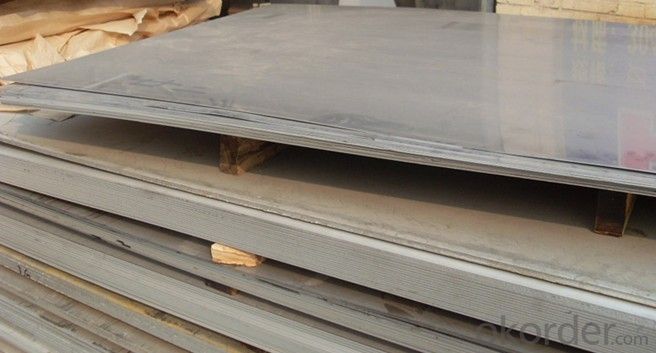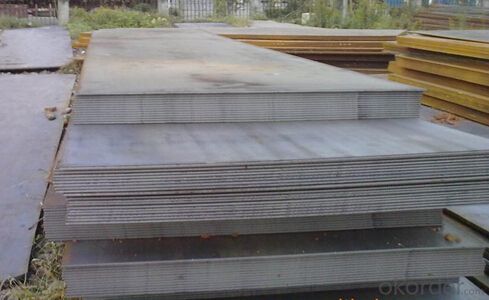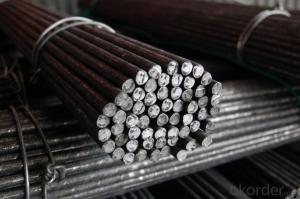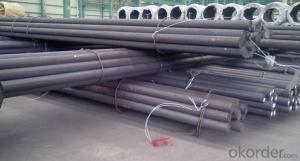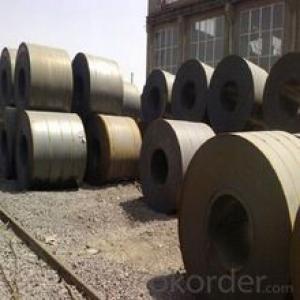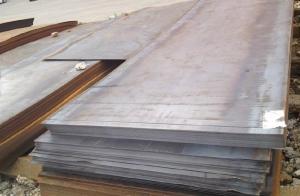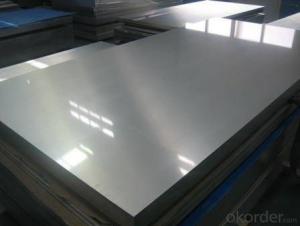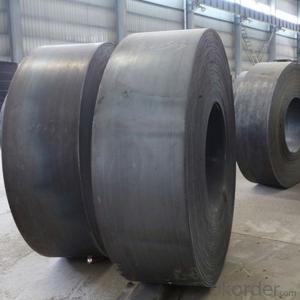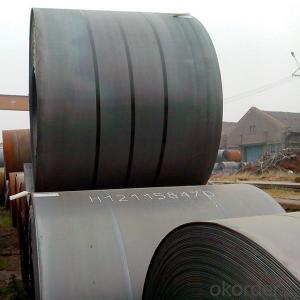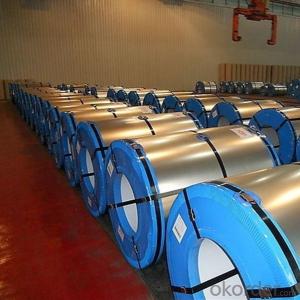SPHC SS400 HR Hot Rolled Steel Coil/Sheet
- Loading Port:
- Tianjin
- Payment Terms:
- TT OR LC
- Min Order Qty:
- 3 m.t.
- Supply Capability:
- 100000 m.t./month
OKorder Service Pledge
OKorder Financial Service
You Might Also Like
Specification
SPHC SS400 HR Hot Rolled Steel Coil/Sheet
Detailed Information of SPHC SS400 HR Hot Rolled Steel Coil/Sheet
| C | Si | P | S | yield Strength MAp | Tensile strength MAp | Elongation % | ||
| A36 | 0.24 | 0.4 | 0.045 | 0.03 | 250 | 400-520 | 26 | |
| C | Si | Mn | P | S | Cu | |||
| A283 | ≤0.27 | 0.15-0.4 | ≤0.9 | ≤0.035 | ≤0.04 | ≥0.2 | ||
| Thickness: | 6mm, 8mm, 12mm, 16mm, 20mm, 25mm, 30mm, 50mm, 80mm, 100mm, 150mm, 200mm | |||||||
| Width: | 1500mm, 1800mm, 2000mm, 2200mm, 2500mm | |||||||
| Length: | 6000mm, 8000m, can cut to width and length | |||||||
| Packing Details; | according to customer‘s require or export’s standard | |||||||
| Delivery time; | 7 days for stock sizes, 20-25 days for new production sizes | |||||||
| Port: | Tianjin China | |||||||
Related Products Overviews of SPHC SS400 HR Hot Rolled Steel Coil/Sheet
Product Name | Typical Grades | Diameter(mm) | Standard Adopted |
Carbon Steel | 20 (1020/S20C/C22) |
Ø16-Ø300 |
GB/SAE/ JIS/DIN |
40 (1040/S40C/C40) | |||
45 (1045/S45C/C45) | |||
Bearing Steel | GCr9 (51100/SUJ1) |
Ø12-Ø250 | |
GCr15 (52100/SUJ2/100Gr6) | |||
GCr9SiMn (A485-Gr.1/SUJ3) | |||
Cr-Mo Steel | 20Cr (5120/SCr420H/20Cr4) |
Ø12-Ø250 | |
40Cr (5140/SCr440/41Cr4) | |||
42CrMo(4140/SCM440/42CrMo4) | |||
Gear Steel | 20CrNiMo |
Ø16-Ø600 | |
20CrMn(5115/SMnC420/20MnCr5) | |||
20CrNiMo(8620/SNCM220/20CrMiMo2) |
Related Products Application of SPHC SS400 HR Hot Rolled Steel Coil/Sheet
Carbon Steel | l Mold bottom l Plastic mold l Construction machinery parts l Automobile parts l Security grills l Screens l Construction |
Bearing Steel | l Aerospace l Navigation l Nuclear energy l Chemical industry l Electronic information l Petrochemical l Instrument and meter l Transportation |
Cr-Mo Steel | l Mechanism & Fasteners gear l Stressed components for vehicles l Engines and machines l Parts of larger cross-section |
Gear Steel | l All kinds of gears l Statically and dynamically stressed component for vehicles l Engines and machine l Larger cross-section parts l Crankshafts |
Company Introduction of SPHC SS400 HR Hot Rolled Steel Coil/Sheet
CNBM International Corporation is the most import and export platform of CNBM group(China National Building Material Group Corporation) ,which is a state-owned enterprise, ranked in 270th of Fortune Global 500 in 2015.
With its advantages, CNBM International are mainly concentrate on Cement, Glass, Iron and Steel, Ceramics industries and devotes herself for supplying high quality series of refractories as well as technical consultancies and logistics solution.
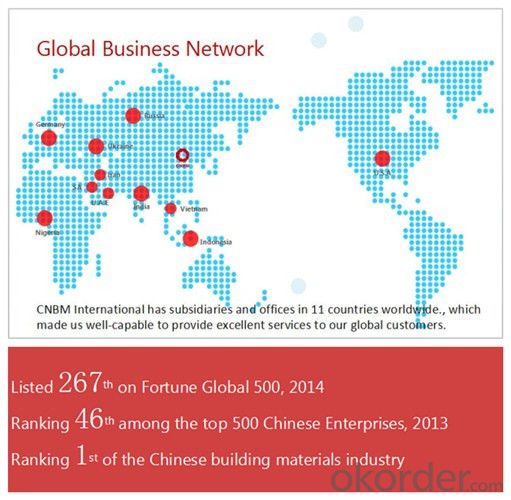
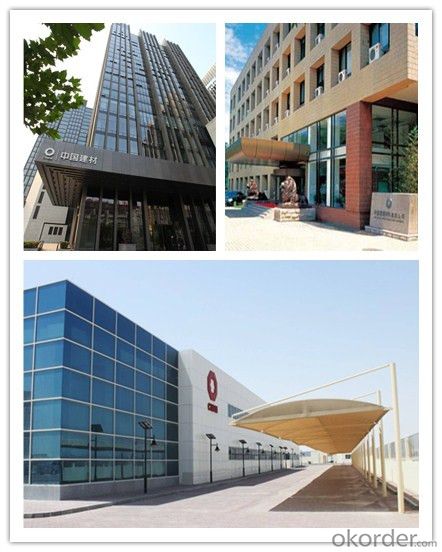
After-sale service | l CNBM provides the services and support you need for every step of our cooperation. We’re the business partners you can trust; you can relax and get on with doing business. l For any problem, please kindly contact us at any your convenient time, we’ll reply you in our first priority within 24 hours
|
Advantages
| l Industry experience over 20 years. l Shipment of goods -More than 70 countries worldwide. l The most convenient transport and prompt delivery. l Competitive price with best service. l High technical production line with top quality products. l High reputation based on best quality products.
|
Packaging & Delivery of SPHC SS400 HR Hot Rolled Steel Coil/Sheet
Packaging Detail | Sea worthy packing /as per customer's packing instruction |
Delivery Detail | 15 ~ 40 days after receiving the deposit |
Products Show
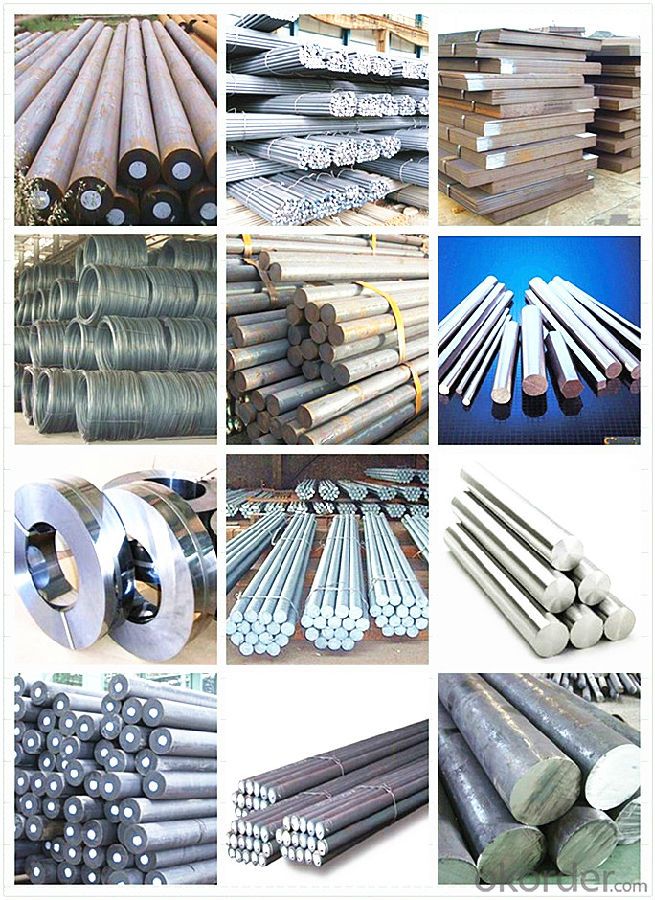
FAQ:
Are you a trading company or manufacturer? | Manufacturer |
What’s the MOQ? | 3 metric ton |
What’s your delivery time? | 15-35 days after downpayment received |
Do you Accept OEM service? | Yes |
what’s your delivery terms? | FOB/CFR/CIF |
What's the Payment Terms? | 30% as deposit,70% before shipment by T/T |
Western Union acceptable for small amount. | |
L/C acceptable for large amount. | |
Scrow ,Paybal,Alipay are also ok | |
Why choose us? | Chose happens because of quality, then price, We can give you both. Additionally, we can also offer professional products inquiry, products knowledge train (for agents), smooth goods delivery, excellent customer solution proposals. |
What's your available port of Shipment? | Main Port, China |
What’s your featured services? | Our service formula: good quality+ good price+ good service=customer's trust
|
Where are your Market? | Covering more than 160 countries in the world |
- Q: How does special steel perform in extreme temperature conditions?
- Special steel is designed to perform exceptionally well in extreme temperature conditions. It has enhanced heat resistance and can withstand high temperatures without losing its strength or structural integrity. Additionally, special steel exhibits excellent thermal conductivity, allowing it to efficiently transfer heat away from critical components. Overall, special steel is highly reliable and durable in extreme temperature environments.
- Q: Can special steel be used in the appliance manufacturing industry?
- Yes, special steel can be used in the appliance manufacturing industry. Special steels, such as stainless steel or high-strength steel, offer various advantages such as corrosion resistance, durability, and enhanced mechanical properties. These qualities make them suitable for manufacturing appliances that require high performance, such as refrigerators, ovens, or washing machines. Additionally, special steels can be customized to meet specific design requirements and can contribute to the overall aesthetic appeal of the appliances.
- Q: How does special steel contribute to the aerospace safety?
- Special steel contributes to aerospace safety in several ways. Firstly, special steel alloys are used in the construction of various critical components in aircraft, such as engine parts, landing gears, and structural elements. These alloys are specially designed to have high strength, durability, and resistance to fatigue and corrosion, ensuring the structural integrity and longevity of these components, ultimately enhancing the overall safety of the aircraft. Additionally, special steel is often employed in the production of cutting-edge aerospace technologies, including advanced sensors, control systems, and avionics. These technologies play a crucial role in enhancing the safety and performance of aircraft, enabling precise monitoring, efficient communication, and accurate navigation, thus minimizing the risk of accidents. Moreover, the use of special steel in aerospace manufacturing helps to reduce the weight of aircraft, leading to improved fuel efficiency. By utilizing lightweight steel alloys, the overall weight of the aircraft is reduced, increasing its maneuverability and reducing fuel consumption. This, in turn, contributes to enhanced safety by allowing for longer flight durations, increased payload capacity, and improved emergency response capabilities. Overall, special steel's unique properties and applications in aerospace contribute significantly to the safety of aircraft, ensuring their structural integrity, enhancing technological advancements, and improving fuel efficiency, all of which are vital for a safe and reliable aerospace industry.
- Q: How does special steel contribute to the manufacturing of fasteners?
- Due to its unique properties and characteristics, special steel is an indispensable material in the production of fasteners. Firstly, it possesses high strength and durability, making it perfect for manufacturing fasteners that must endure heavy loads and high levels of stress. This guarantees that the fasteners can securely hold components together without breaking or becoming loose over time. Additionally, special steel is renowned for its outstanding corrosion resistance. Fasteners are frequently exposed to diverse environmental conditions, such as moisture, chemicals, and extreme temperatures. The corrosion resistance of special steel helps prevent rust and deterioration, ensuring the longevity and dependability of the fasteners. Furthermore, special steel can be easily shaped, machined, and heat-treated, enabling the production of fasteners with precise dimensions and customized designs. This versatility in manufacturing processes allows for the creation of fasteners that can meet specific application requirements, including different thread types, sizes, and head styles. Moreover, special steel offers excellent wear resistance and hardness, which are crucial for fasteners subjected to repetitive movements or constant friction. The hardness of special steel helps the fasteners maintain their shape and integrity, reducing the risk of deformation or failure during operation. Overall, special steel plays a crucial role in fastener manufacturing by providing high strength, corrosion resistance, versatility in manufacturing processes, and excellent wear resistance. These properties ensure that fasteners are reliable, long-lasting, and capable of withstanding the demands of various industries, such as automotive, aerospace, construction, and machinery.
- Q: How are cobalt-based alloys used in dental applications?
- Cobalt-based alloys are used in dental applications due to their unique properties such as high strength, corrosion resistance, and biocompatibility. They are commonly used in dental prosthesis, crowns, and bridges because they can withstand the harsh oral environment and provide long-term durability. Additionally, these alloys allow for precise and accurate fitting, ensuring optimal functionality and aesthetic appeal in dental restorations.
- Q: What are the main advantages of using special steel in aerospace applications?
- The main advantages of using special steel in aerospace applications include its high strength-to-weight ratio, excellent corrosion resistance, and superior heat resistance. Special steel allows for the construction of lighter and more fuel-efficient aircraft, while still maintaining structural integrity under extreme conditions. Additionally, its resistance to corrosion and heat enables it to withstand the harsh environments and high temperatures experienced during flight.
- Q: What are the physical properties of special steel?
- Special steel is a type of steel that possesses unique physical properties compared to regular steel. These properties may vary depending on the specific composition and processing techniques used. However, some common physical properties of special steel include high strength, hardness, and durability. Special steel is often designed to withstand extreme conditions such as high temperatures, pressure, and corrosive environments. It may also exhibit excellent wear resistance, making it suitable for applications involving heavy machinery or cutting tools. Furthermore, special steel can have superior electrical and thermal conductivity, as well as good magnetic properties. Overall, the physical properties of special steel make it highly versatile and valuable in various industries such as automotive, aerospace, construction, and energy.
- Q: What is the significance of phosphorus in special steel?
- Phosphorus plays a vital role in the production of special steel due to its numerous advantageous properties. To begin with, it acts as a deoxidizer during the steel manufacturing process, thereby eliminating impurities like oxygen. This results in an overall improvement in the quality and purity of the steel, making it more resistant to corrosion and enhancing its mechanical properties. Additionally, phosphorus has the ability to enhance the strength and hardness of the steel, making it ideal for applications that demand durability and resistance to wear. It also aids in improving the steel's machinability, facilitating easier shaping and processing. Moreover, phosphorus contributes to the steel's capacity to retain its strength even at high temperatures, making it suitable for use in environments like power plants or aerospace industries. However, it is crucial to control the concentration of phosphorus within certain limits as excessive levels can have detrimental effects. A high phosphorus content can lead to brittleness, reduced toughness, and decreased weldability of the steel. Therefore, it is necessary to carefully consider and balance the beneficial effects of phosphorus with its potential drawbacks. In conclusion, the significance of phosphorus in special steel lies in its ability to enhance the quality, purity, strength, hardness, machinability, and high-temperature performance of the steel. By controlling the phosphorus content within appropriate limits, manufacturers can produce special steel with improved properties that meet the specific requirements of various industrial applications.
- Q: How does special steel resist wear and tear?
- Special steel resists wear and tear due to its unique composition and manufacturing process. It is typically alloyed with elements like chromium, nickel, and molybdenum, which enhance its hardness, strength, and corrosion resistance. Additionally, special steel undergoes heat treatment processes such as quenching and tempering, which further increase its durability and ability to withstand various mechanical stresses. This combination of alloying elements and heat treatment results in a steel that is highly resistant to wear, friction, and fatigue, making it suitable for demanding applications where durability is crucial.
- Q: What are the challenges faced in the manufacturing process of special steel?
- To ensure the production of high-quality special steel, numerous challenges must be addressed in the manufacturing process. Some of the key challenges faced are as follows: 1. Raw material selection: It is crucial to choose the appropriate raw materials with specific alloying elements in precise proportions to achieve the desired properties of special steels. Consistently ensuring the availability and quality of these raw materials can be challenging. 2. Alloy design and composition: Designing the alloy composition to meet specific requirements can be a complex task. Achieving the desired balance of strength, hardness, toughness, corrosion resistance, and other properties necessitates thorough research, testing, and expertise. Developing new alloys with improved properties can be particularly difficult. 3. Melting and refining: Special steels are typically produced using electric arc furnaces or induction melting. Ensuring precise temperature control, proper cooling rates, and refining processes to eliminate impurities like sulfur, phosphorus, and non-metallic inclusions are crucial. Advanced technology and precise control are necessary to maintain consistent quality. 4. Heat treatment: Heat treatment is a critical step in the special steel manufacturing process. Achieving the desired microstructure and properties through processes like quenching, tempering, annealing, or precipitation hardening can be challenging. Proper temperature control, heating and cooling rates, and time durations are essential to obtain the desired properties. 5. Quality control and testing: Consistently ensuring quality throughout the manufacturing process is of utmost importance. Regular testing and inspection to detect and eliminate defects, inconsistencies, and non-conformities are necessary. This includes dimensional accuracy, mechanical properties testing, non-destructive testing, and chemical analysis. 6. Production efficiency: Special steel manufacturing often involves complex procedures and longer processing times compared to regular steel production. Optimizing the production process to maximize efficiency, minimize waste, and reduce energy consumption is an ongoing challenge. Implementing lean manufacturing principles and utilizing advanced technologies can help address these challenges. 7. Environmental considerations: The production of special steel can have a significant environmental impact. Addressing issues such as energy consumption, waste management, emissions control, and water usage is crucial for sustainable production. Complying with environmental regulations and adopting eco-friendly practices can be challenging yet necessary. Overcoming these challenges requires a combination of technical expertise, research and development, investment in advanced equipment and technologies, and an ongoing commitment to quality control and process improvement.
Send your message to us
SPHC SS400 HR Hot Rolled Steel Coil/Sheet
- Loading Port:
- Tianjin
- Payment Terms:
- TT OR LC
- Min Order Qty:
- 3 m.t.
- Supply Capability:
- 100000 m.t./month
OKorder Service Pledge
OKorder Financial Service
Similar products
Hot products
Hot Searches
Related keywords
